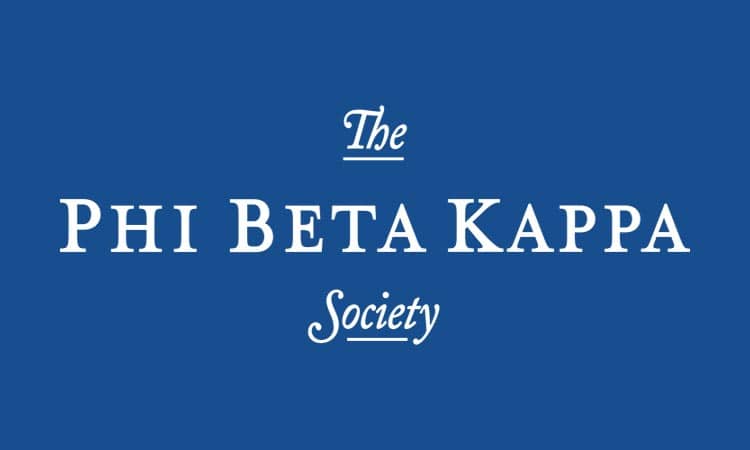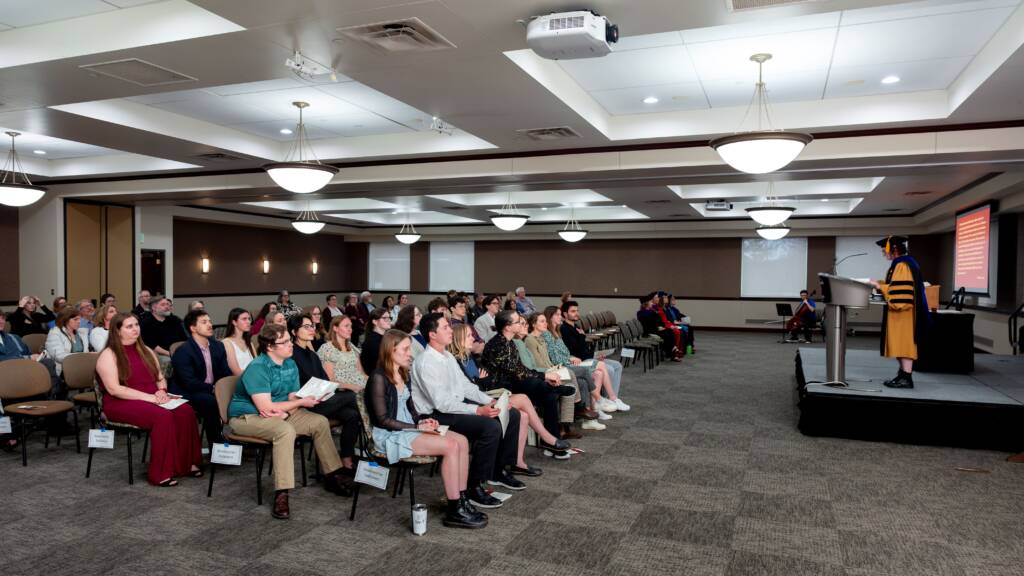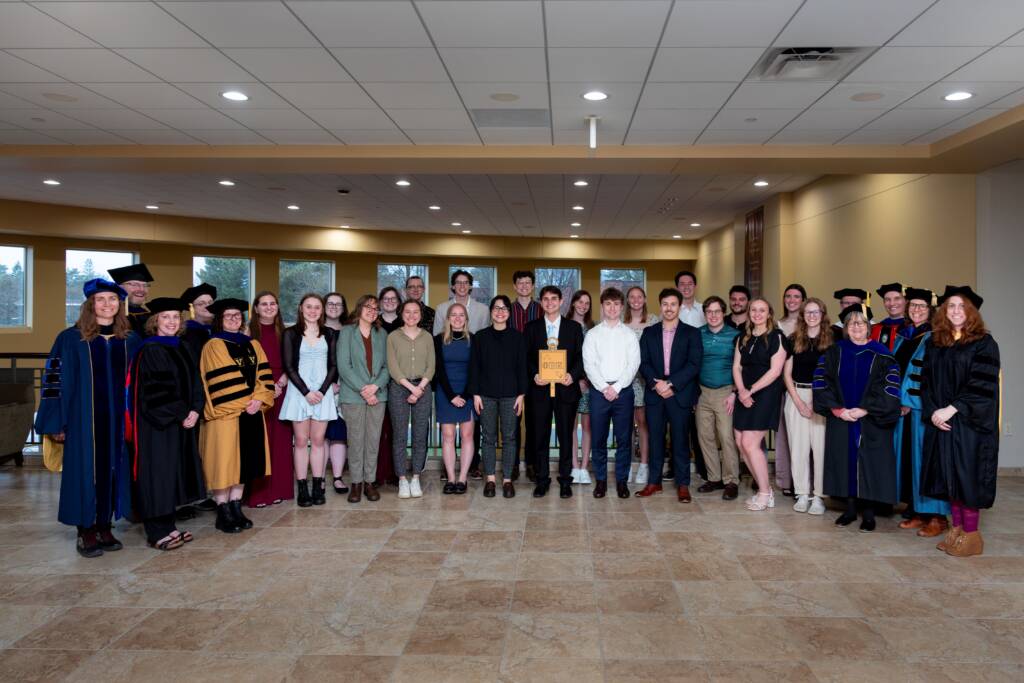A group of College of Saint Benedict and Saint John’s University students are the latest to receive an elite academic honor.
A total of 33 students from CSB and SJU make up the 2025 list of inductees to Phi Beta Kappa. This is the 16th cohort of students who have been inducted into the chapter, which now counts over 800 members.
Those selected are Phi Beta Kappa members for life and receive a certificate to honor their achievement.
A ceremony to honor the inductees was held May 1.
CSB and SJU Provost Richard Ice provided opening remarks. Alexis Martinez Mejia ’25 gave the student address titled “The Power of Curiosity and Conversation.” Elisheva Perelman, associate professor of history, gave the faculty address titled “Defying Gravitas: Combating Hubris with Critical Thought.”
Students are chosen based on their grade-point average (3.85 for juniors, 3.65 for seniors) and must be a liberal arts and/or sciences major. The selection committee also looked at the breadth and depth of the student’s program and other achievements, such as a thesis or other research; interest in other cultures or languages; extracurricular activities; and academic performance.
Phi Beta Kappa is the nation’s oldest academic society. It was founded in 1776 by several students from the College of William and Mary during the American Revolution. It was originally intended to promote freedom of inquiry and liberty of thought and expression.
There are now over 290 chapters at select American colleges and universities, with more than 700,000 members who come from diverse backgrounds and experiences. According to the organization’s website, 10 percent of U.S. colleges and universities have Phi Beta Kappa chapters. Over 20,000 juniors and seniors are inducted every year.
Past members have included 17 U.S. Presidents, 42 Supreme Court justices and over 150 Nobel Laureates.
Here is a list of the 2025 inductees into the Theta Chapter of Phi Beta Kappa at Saint Ben’s and Saint John’s:
- Charis Birkholz (economics/individualized, Savage, Minnesota)
- Jordan Borgeson (biochemistry, Rochester, Minnesota)
- Addison Bowne (environmental studies, Big Lake, Minnesota)
- Dariq Chase (economics, Nassau, The Bahamas)
- Nathan Courchane (computer science, Minneapolis, Minnesota)
- Rachel Erben (political science, Juneau, Alaska)
- Noah Friendshuh (philosophy/political science, Cary, North Carolina)
- Arabella Fuzak (mathematics/Hispanic studies, Sartell, Minnesota)
- Joe Gathje (economics, Bloomington, Minnesota)
- Collin Kray (chemistry, Little Falls, Minnesota)
- Tony Krystofiak (computer science/physics, Mounds View, Minnesota)
- Madeline Lenius (theology, Chaska, Minnesota)
- Ella Martin (biology, Bemidji, Minnesota)
- Maggie McGuire (psychology, Plymouth, Minnesota)
- Carson Mehling (biochemistry, Brainerd, Minnesota)
- Nicholas Mertens (environmental studies/political science, Maple Grove, Minnesota)
- Jules Miyazaki (English, West Des Moines, Iowa)
- Annie Mraz (psychology, Minneapolis, Minnesota)
- Audrey Munshower (environmental studies, Redwood Falls, Minnesota)
- Rylie Owen (classical languages, Lakeville, Minnesota)
- Grant Pedersen (biochemistry/pre-medicine, Omaha, Nebraska)
- Sophie Pennings (mathematics/art, Hayden Lake, Idaho)
- Bradyn Petrek (economics, St. Cloud, Minnesota)
- Ethan Riddle (peace studies, Duluth, Minnesota)
- David Roberts (environmental studies, West Des Moines, Iowa)
- Emma Rodeghier (environmental studies, Minneapolis, Minnesota)
- Kathryn Schug (English, St. Louis Park, Minnesota)
- Matthew Scribner (biology, El Paso, Texas)
- Anna Tritch (exercise and health science, Northfield, Minnesota)
- Caroline Tuck (chemistry, Le Sueur, Minnesota)
- Lauren Voll (biochemistry, Byron, Minnesota)
- Dayna Wiley (biology/classical languages, Fargo, North Dakota)
- Caroline Wraneschetz (chemistry/English, Arden Hills, Minnesota)



